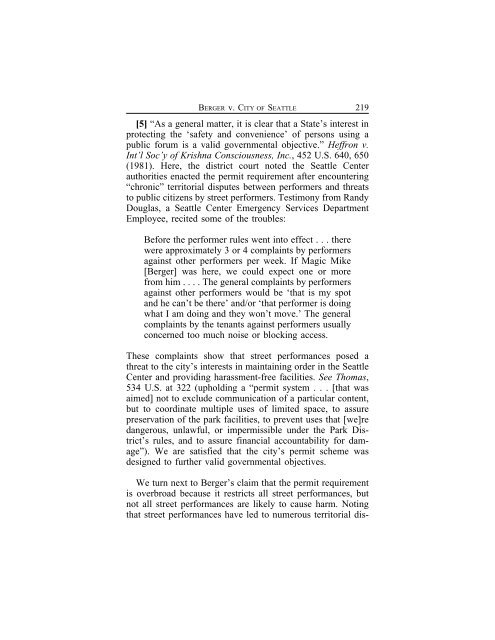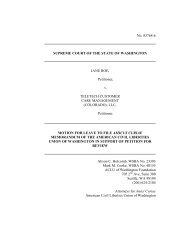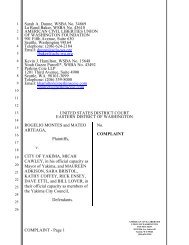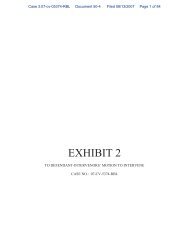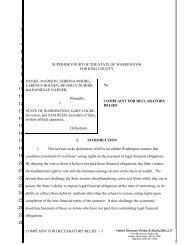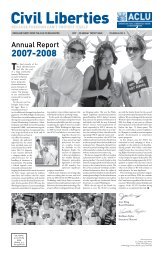BERGER v. CITY OF SEATTLE - ACLU of Washington
BERGER v. CITY OF SEATTLE - ACLU of Washington
BERGER v. CITY OF SEATTLE - ACLU of Washington
You also want an ePaper? Increase the reach of your titles
YUMPU automatically turns print PDFs into web optimized ePapers that Google loves.
<strong>BERGER</strong> v. <strong>CITY</strong> <strong>OF</strong> <strong>SEATTLE</strong><br />
[5] “As a general matter, it is clear that a State’s interest in<br />
protecting the ‘safety and convenience’ <strong>of</strong> persons using a<br />
public forum is a valid governmental objective.” Heffron v.<br />
Int’l Soc’y <strong>of</strong> Krishna Consciousness, Inc., 452 U.S. 640, 650<br />
(1981). Here, the district court noted the Seattle Center<br />
authorities enacted the permit requirement after encountering<br />
“chronic” territorial disputes between performers and threats<br />
to public citizens by street performers. Testimony from Randy<br />
Douglas, a Seattle Center Emergency Services Department<br />
Employee, recited some <strong>of</strong> the troubles:<br />
Before the performer rules went into effect . . . there<br />
were approximately 3 or 4 complaints by performers<br />
against other performers per week. If Magic Mike<br />
[Berger] was here, we could expect one or more<br />
from him . . . . The general complaints by performers<br />
against other performers would be ‘that is my spot<br />
and he can’t be there’ and/or ‘that performer is doing<br />
what I am doing and they won’t move.’ The general<br />
complaints by the tenants against performers usually<br />
concerned too much noise or blocking access.<br />
219<br />
These complaints show that street performances posed a<br />
threat to the city’s interests in maintaining order in the Seattle<br />
Center and providing harassment-free facilities. See Thomas,<br />
534 U.S. at 322 (upholding a “permit system . . . [that was<br />
aimed] not to exclude communication <strong>of</strong> a particular content,<br />
but to coordinate multiple uses <strong>of</strong> limited space, to assure<br />
preservation <strong>of</strong> the park facilities, to prevent uses that [we]re<br />
dangerous, unlawful, or impermissible under the Park District’s<br />
rules, and to assure financial accountability for damage”).<br />
We are satisfied that the city’s permit scheme was<br />
designed to further valid governmental objectives.<br />
We turn next to Berger’s claim that the permit requirement<br />
is overbroad because it restricts all street performances, but<br />
not all street performances are likely to cause harm. Noting<br />
that street performances have led to numerous territorial dis-


